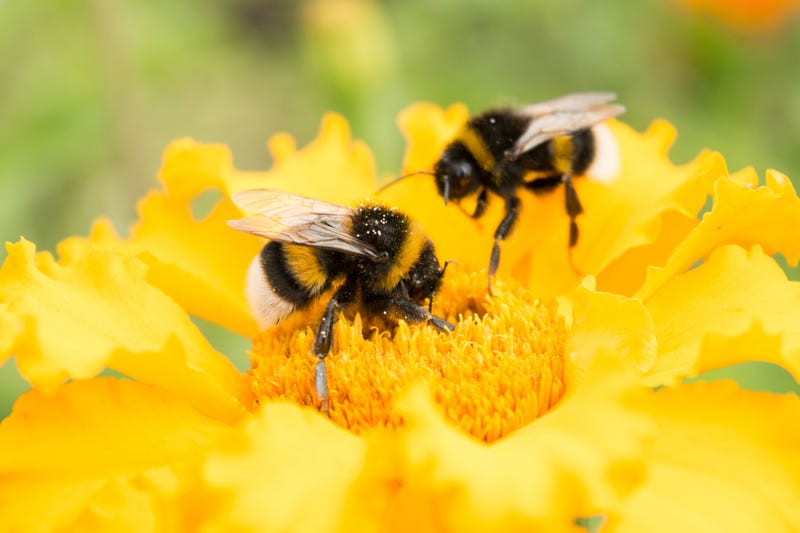
Maybe Jerry Seinfeld wasn't too far off when he made his cult classic film 'Bee Movie,' as a new study has found that bumble bees like to "play."
The discovery was made by researchers at Queen Mary University in London. Their experiments found that bumble bees went out of their way to roll wooden balls repeatedly instead of taking an unobstructed path to food.
The study examined 45 bumble bees in the arena, which gave them an option between food and play. The study found that younger bees rolled more balls than older bees, and male bees played for longer than their female counterparts.
Throughout the experiment, individual bees rolled the wooden balls between 1 and 117 times. Scientists have compared the behavior to mammals, concluding that moving the ball was rewarding for the bees.
To further understand the action of the bees, another 42 were given access to two chambers that were colored, one that had movable balls and one without any objects. When the bees were given a choice between the two chambers without anything in either, the bees gravitated toward the one that was once filled.
This led researchers to the conclusion that bees were not moving the balls for any purpose other than to play.
Samadi Galpayage, the study's lead author and a Ph.D. student at the university, shared his thoughts on the research, calling it "mind-blowing" and "amusing to watch bumble bees" play, National Geographic reported.
"They approach and manipulate these 'toys' again and again. It goes to show, once more, that despite their little size and tiny brains, they are more than small robotic beings," Galpayage said.
He continued, saying that the results of the experiment could show the bees have a more advanced understanding than previously thought.
"They may actually experience some kind of positive emotional states, even if rudimentary, like other larger fluffy, or not so fluffy, animals do," Galpayage said. "This sort of finding has implications to our understanding of sentience and welfare of insects and will, hopefully, encourage us to respect and protect life on Earth evermore."
Galpayage isn't the only person to come to this conclusion either, as Lars Chittka, a professor of sensory and behavioral ecology at the Queen Mary University of London, recently wrote a book discussing the same topic.
"This research provides a strong indication that insect minds are far more sophisticated than we might imagine," Chittka told Science Daily. "There are lots of animals who play just for the purposes of enjoyment, but most examples come from young mammals and birds."
LISTEN on the Audacy App
Sign Up and Follow Audacy
Facebook | Twitter | Instagram

